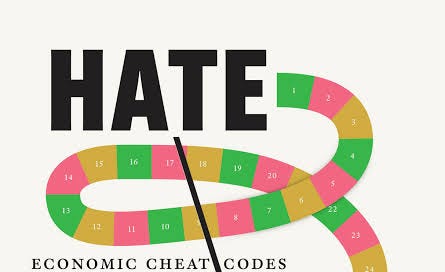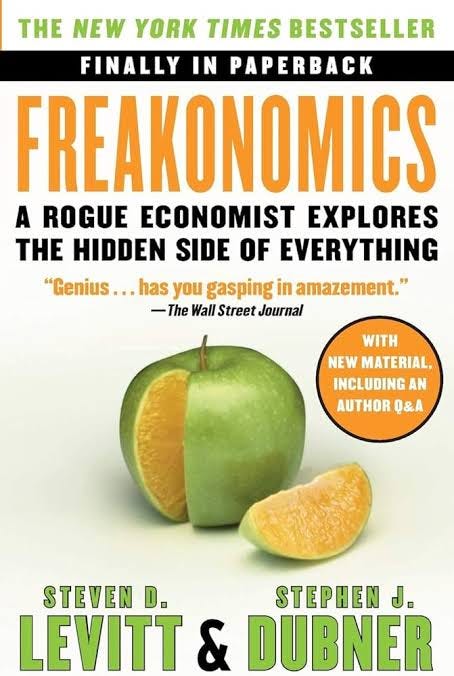Book Review: Hate the Game by Daryl Fairweather
A book that tries to advice its readers on making the most of situations using economics.
Daryl Fairweather begins her book "Hate the Game" by making some tall claims. As per her, the book is related to "Freakonomics," like how the movie 'Get Out' is related to John Carpenter's 'Halloween.' She says that like how Jordan Peele was inspired by John Carpenter, but made his movie by using his experiences as a person of minority, she also, while inspired by Steven Levitt and his "Freakonomics," used her perspectives as a double minority in economic studies, as a Black woman, to write this book. She asks the reader to compare her to Levitt and Peele and says that the methods she teaches us in the book 'are rooted in economics and game theory, backed with empirical real-world experience.'
I believe that comparing a book with another one or a writer with another isn't fair, because the context of one book and the perspectives of one writer will definitely be varied from another book and its writer. You could mention any references, like pointing out that Fairweather was inspired by Freakonomics when her father gave her the book to read, and then she went on to study economics and eventually did her PhD under him. But when you read the introduction and the writer asks for a comparative assessment of her work, it becomes difficult not to do it while reading further, however forcefully you desist yourself.
"Hate the Game" is taglined as 'economic cheat codes for life, love, and work.' The writer introduces game theory and some fundamentals of economics. She tries to make us aware of how economics pervades every facet of human decisions and interactions and how we can play, or even not play, every game in our lives to our advantage. She states that though every game in a capitalist structure is rigged to benefit a privileged party, we can use the cheat codes of the economy and try to play it to our benefit up to some extent. In the last chapter, she suggests an easy fix to the capitalist system that could make the games more fair from an economic standpoint.
I can only say that while comparing the book to "Freakonomics," it's not interesting enough, and when compared to 'Get Out', it's not profound enough. The many pieces of advice that the writer gives in the book are obvious ones that are just coated with economic jargon. While "Freakonomics" strikes you with alternate perspectives to look at everyday life, "Hate the Game" gives you sugar pills and claims they are economic fixes. For example, if you see the summarization that the author wrote for her second chapter, Choosing Games, the highlights are these:
Identify your level of advantage.
Identify opportunities to gain skills.
Give yourself a time limit.
Determine which game you would rather win.
Ask yourself: Are you afraid of change?
These are the simple steps any intelligent person follows when they decide to pursue anything new, whether they know economics or not. Though she uses terms like 'status quo bias' to explain her ideas, her advice rarely uses any economic theory to solve our issues.
While she criticizes career books like "Lean In" as memoirs and personal essays, this book itself is entirely based on the personal experiences of the writer, and very rarely do you find any basis of serious research. She herself indulges a lot in survivorship bias, which she accuses writers like Sheryl Sandberg of. I'm not denying her decision-making skills or her ability to fight against several systemic riggings and come up in life. It's inspiring to read about and would give enough ideas to use in our lives and emerge winning against the game. But we cannot deny that her advice and examples are not based on economic theories but on subjective experiences of the author herself.
I believe the book "Algorithms to Live By" is a better alternative, which takes up many of these issues and uses game theory to solve them using an algorithmic approach.





